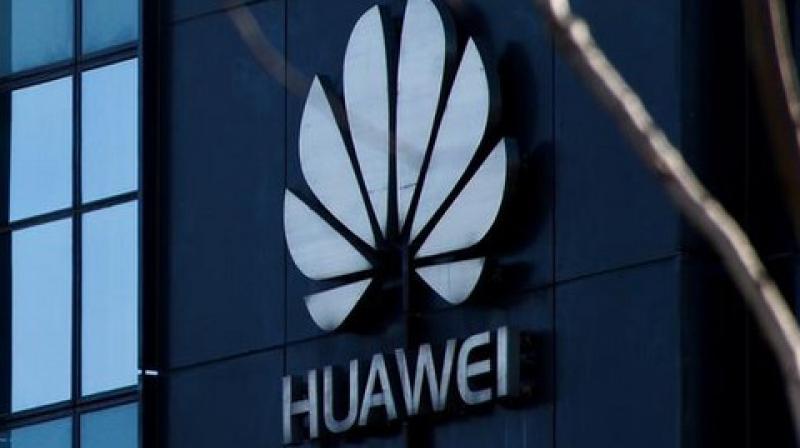Huawei\'s backup plans leave experts unconvinced
The Trump administration officially added Huawei to a trade blacklist on Thursday.

Chip experts are calling out Huawei for its claims that it could ensure a steady supply chain without US help, saying the technology the Chinese telecoms network gear maker buys from American companies would be “hard to replace”.
The Trump administration officially added Huawei to a trade blacklist on Thursday, enacting restrictions that will make it difficult for the tech giant to do business with American firms, in its latest broadside against the company that US officials have labeled a threat to national security.
The head of Huawei’s HiSilicon chip division on Friday shrugged off concerns about disruptions to supply, saying it has long been preparing for this kind of “extreme scenario”.
Huawei will aim to be technologically “self-reliant” going forward, He Tingbo said in a letter to staff.
But that is easier said than done, industry experts say.
“I would be surprised if HiSilicon can make it without any US suppliers,” said Linda Sui, a Strategy Analytics analyst.
A China-based source at a US tech company previously told Reuters that none of Huawei’s US suppliers “can be replaced by Chinese ones, not within a few years, at least”.
As an example of Huawei’s reliance on US firms, an expert pointed to the high probability that the tech giant uses chip design software from market leaders Cadence Design Systems Inc and Synopsys Inc.
Huawei designs its microprocessors and other chips for products including the Mate series flagship smartphones.
The U.S firms’ software is considered gold standard, used by manufacturers globally to perfect chip blueprints and test them before committing them to physical silicon, where a single mistake can set back a chip for months.
“It’s hard to replace,” said Mike Demler, a senior analyst with The Linley Group. “Cadence and Synopsys pretty much have all the ground covered for anything you would need,” he said.
“I’m sure there’s some equivalent that tries to fill the same roles from Chinese companies, but the Chinese just do not have a presence we’re aware of outside of the country.”
Cadence and Synopsys did not respond to requests for comment. Huawei said it cannot comment.
SPECIALIZED CHIPS, LASERS
Huawei also has exposure to US suppliers of specialty lasers and modules such as NeoPhotonics, Lumentum and Finisar.
The lasers, which are used to send information in the form of light signals through fiber-optic cables, are critical to Huawei’s world-leading telecom network equipment business.
Firms like Finisar, which is being bought by II-VI Inc, and Lumentum have put decades of work into being able to make large quantities of lasers, said Philip Gadd, a retired chip executive who once ran Intel’s silicon photonics division.
“Even if the Chinese could do it, I don’t think they could come up to scale,” he said.
Finisar is trying to determine the impact of the Huawei ban, according to a person briefed on the matter.
Finisar and Lumentum did not return requests for comment. NeoPhotonics, which gets most of its revenues from four firms including Huawei, declined to comment.
Huawei has sought to develop its own capabilities in the field, in part by purchasing a former British Telecom research center in 2012 and startup Caliopa in 2012.
“The Chinese have been on an acquisition path,” said one silicon photonics executive. “They’ve been buying up bits and pieces wherever they could. A lot of the (US government) restrictions have come too late.”
But Huawei relies on so-called chip “foundries”, especially Taiwan Semiconductor Manufacturing Co Ltd (TSMC), for the complex task of physically producing the chips that it designs. That is a common practice in the chip industry.
By contrast, many silicon photonics firms such as Finisar, still make their own chips.
MARCH TO SELF-SUFFICIENCY
Huawei has been under pressure since early in the decade over US allegations its gear could be a conduit for Chinese spying, a concern the company says is unfounded.
The United States has ratcheted up the rhetoric in the past year, calling on allies to bar the firm from next-generation 5G mobile networks while locking horns with China in a trade war.
Against this backdrop, Huawei has been a key part of China’s campaign to develop its own capabilities in chips and reduce reliance on imports from companies such as Qualcomm, Intel and Samsung Electronics .
Huawei’s chip division produced more than $7.5 billion worth of chips last year, its rotating chairman Eric Xu had told Reuters. That compares with an estimated $21 billon worth of chips that Huawei acquired from outside vendors.
A Huawei spokesman said the company will use HiSilicon products to substitute banned American components where possible, but declined to provide more details.
HiSilicon’s He has described the self-sufficiency efforts as a “long march in the history of technology” that would pay off with the United State’s “crazy decision”. “All the spare tires we have been making, now is the time to use them!”

